Father will be back in town early, so we WILL have Sunday services on January 9 & January 16.
~
BLESSINGS & FAREWELL TO THE AZKOUL FAMILY
We have been blessed to have Aaron & Rebecca Azkoul and family with us during their time at Goodfellow Air Force Base. This week we received the following letter from Rebecca:
Your blessings, Father,
We pray you and your family are having a safe and enjoyable trip.
Assumption was such a welcoming and kind parish, and we were so grateful to be a small part of it. Aaron’s orders have us leaving this weekend (the 8th) back to St. Louis.
We will miss you all and pray for you.
Thank you again for your support and friendship.
Forgive me,
Rebecca Azkoul (and family!)
~
STEWARDSHIP
Please return your pledge cards promptly. Pledge cards aren't a binding contract. They aren't an attempt to predict the future. They show what you think you can give to the church as part of your care and upkeep for it. If you have a change in circumstances like a job loss, job change, etc., then just let the priest know what is going on and it will be fine. Thank you.
~
DONATIONS
We still need about $7,000 to finish paying off the new HVAC system. Thank you to everyone who has donated so far.
If you haven't donated yet, please consider making at least a small donation. Every bit helps.
~
HOUSE BLESSINGS
If the Covid situation continues to be mild, and the Bishop gives his blessing to do so, then we will be able to resume the typical Orthodox practice of house blessings in 2022. These will occur in January and February. A sign-up list will be posted in the Social Hall. House blessings are your opportunity to have a special blessing said for you and your house. It's a special service that really makes a house feel like a home.
~
UPCOMING SPECIAL SERVICES
-
Wednesday, February 2, the feast day of the Presentation of the Lord at the Temple: 9 am Orthros, 9:45 am Divine Liturgy
-
Saturday, February 26, Saturday of Souls, 9 am Orthros, 10 am Liturgy
-
Sunday, February 27, Meatfare Sunday, 9 am Orthros, 10 am Liturgy
-
Saturday, March 6, Saturday of Souls, 9 am Orthros, 10 am Liturgy
-
Sunday, March 7, Sunday of Forgiveness, 9 am Orthros, 10 am Liturgy, with Vespers of Forgiveness immediately following Liturgy, and coffee hour following the Vespers
-
Monday, March 7, Lent begins, with Great Compline at 7 pm. Start Lent off right with attending the Great Compline. We will also have six Lenten Service Projects for everyone to participate in.
~
WAYS YOU CAN HELP
-
We always need prosforo bakers. If you'd like to sign up, see Fr. Mark.
-
We need people to help bring food to coffee hour. If you don't want to sponsor the entire meal, you could team up with someone, or just volunteer to bring one dish. There is a sign-up sheet in the kitchen.
-
We are looking for volunteers to read the Epistle on Sundays. You could read aloud or chant it, whichever you prefer. If you don't know how to chant it, we can teach you. See Father or John Choate.
~
Saints for the Week: See the write-ups we have down below in this bulletin. The saints' stories are very interesting and helpful to us.
~
Other Announcements:
-
Send your prayer requests to Fr. Mark. Also send your requests for visits to the sick and the hospitalized. These days, hospitals do not release patient information or call the priest, so you need to let Father know yourself.
-
When you travel, find an Orthodox parish and go to church! They are easy to find online. Why should we visit other parishes when we go on vacation? Because God doesn't take a break from us, so we shouldn't take a break from Him!
~
COFFEE HOUR
Please join us for Coffee Hour. Take the initiative to stay, meet, and talk with one another, so we can build strong bonds of friendship and community.
~
SPECIAL OCCASIONS
Since we won't have regular Sundays til later in January, I'm putting down everyone who has a "date" between now and when we are getting back to regular services
Birthdays: Joanna Garcia
Anniversaries: none
Namedays: Hilary Choate (St. Hilary of Poitiers)
Memorials: none
** As always, see the parish website for any changes and updates. **
 His Eminence Metropolitan Methodios of Boston announces the appointment of Presbytera Maria Drossos as the Director of the Metropolitan’s Office effective January 3rd, 2022.
His Eminence Metropolitan Methodios of Boston announces the appointment of Presbytera Maria Drossos as the Director of the Metropolitan’s Office effective January 3rd, 2022.
 Presvytera Melanie speaks with Matushka Wendy Cwiklinski, founder of the private Facebook group “Koinonia for Exceptional Orthodox Families,” about her family’s experience of misconceptions of behaviors related to invisible disabilities, the difficult decision to speak on and publish material about such, the gift that persons with disabilities are to their “typical” community members, and more!
Presvytera Melanie speaks with Matushka Wendy Cwiklinski, founder of the private Facebook group “Koinonia for Exceptional Orthodox Families,” about her family’s experience of misconceptions of behaviors related to invisible disabilities, the difficult decision to speak on and publish material about such, the gift that persons with disabilities are to their “typical” community members, and more!
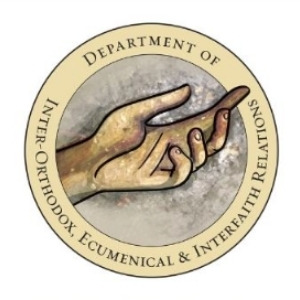 Dear Friends,
With 2021 officially behind us, now is a time to reflect and look forward to the new year. This occasion allows us to reinvest in our own personal missions and reminds us that each of us offers a unique contribution.
Dear Friends,
With 2021 officially behind us, now is a time to reflect and look forward to the new year. This occasion allows us to reinvest in our own personal missions and reminds us that each of us offers a unique contribution.
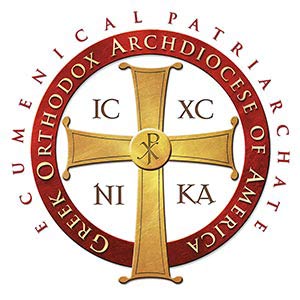 Archbishop Elpidophoros Offers Blessings for New Assignments
Archbishop Elpidophoros Offers Blessings for New Assignments
 The annual Metropolis of Denver Basketball Event is the largest Orthodox gathering of any kind, in the entire Metropolis of Denver, and offers an atmosphere of Christian fellowship and friendly competition for hundreds of GOYAns, family, and friends.
The annual Metropolis of Denver Basketball Event is the largest Orthodox gathering of any kind, in the entire Metropolis of Denver, and offers an atmosphere of Christian fellowship and friendly competition for hundreds of GOYAns, family, and friends.
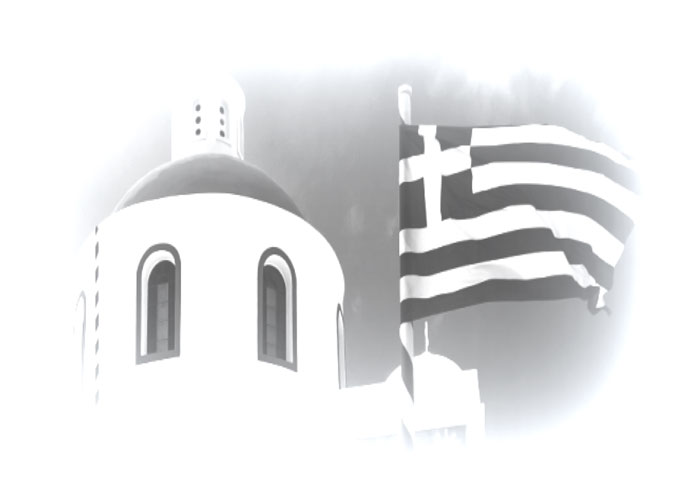 The Office of Greek Education of the Greek Orthodox Archdiocese of America is pleased to announce the winners of the 2021 Christmas Essay/Video Contest.
The Office of Greek Education of the Greek Orthodox Archdiocese of America is pleased to announce the winners of the 2021 Christmas Essay/Video Contest.
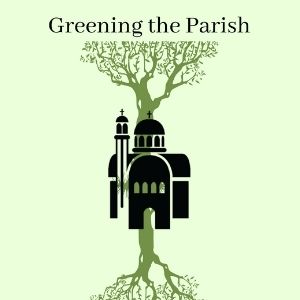 This week’s “How-to” Green Your Parish episode features Dr. Nikolaos Asproulis, Deputy Director of the Volos Academy for Theological Studies and Lecturer at Hellenic Open University, “Greening Your Parish – The Volos Experience”
This week’s “How-to” Green Your Parish episode features Dr. Nikolaos Asproulis, Deputy Director of the Volos Academy for Theological Studies and Lecturer at Hellenic Open University, “Greening Your Parish – The Volos Experience”
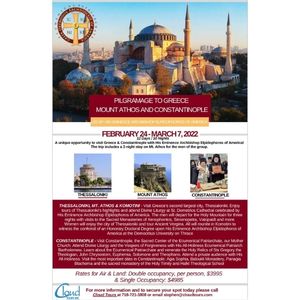 His Eminence Archbishop Elpidophoros of America is pleased to announce that in light of the approaching Centennial of our Sacred Archdiocese he will be leading pilgrimage trips to various significant Orthodox sites throughout the year 2022.
His Eminence Archbishop Elpidophoros of America is pleased to announce that in light of the approaching Centennial of our Sacred Archdiocese he will be leading pilgrimage trips to various significant Orthodox sites throughout the year 2022.
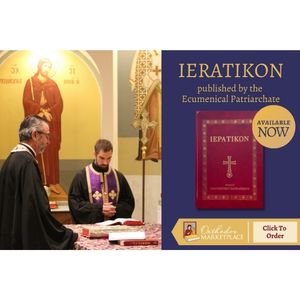 We are pleased to announce the arrival of the Ieratikon as published by the Ecumenical Patriarchate! This essential text, designed for use by the Clergy, includes the liturgies of St. John Chrysostom, St. Basil the Great and the Presanctified Gifts.
We are pleased to announce the arrival of the Ieratikon as published by the Ecumenical Patriarchate! This essential text, designed for use by the Clergy, includes the liturgies of St. John Chrysostom, St. Basil the Great and the Presanctified Gifts.
